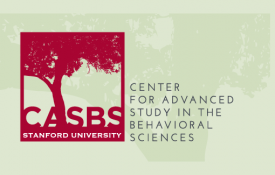-

CASBS Accepting Applications for Residential Fellowships
The Center for Advanced Study in the Behavioral Sciences at Stanford University is now accepting applications for residential fellowships for the 2019–2020 academic year.
-
Society for Applied Research in Memory and Cognition Biennial Meeting
The Society for Applied Research in Memory and Cognition (SARMAC) invites submissions for its 13th biennial meeting to be held in Brewster, Cape Cod, MA, USA, June 6th to 9th, 2019. SARMAC welcomes submissions for papers, symposia, or posters in any area of applied research on memory and cognition (e.g., law, education, engineering, health/medicine, politics, marketing, human factors). The conference features keynotes by Stephan Lewandowsky (University of Bristol), Susan Bluck (University of Florida), Simine Vazire (University of California – Davis), and Steven Whittaker (University of California – Santa Cruz). The deadline for symposia submission is November 1, 2018.
-

Does Concentration Blunt Our Sense of Smell?
A study indicates that when we’re distracted by something visual, we can actually miss an unrelated smell.
-
Researchers Investigate Problems with MTurk Data
Some psychological researchers and other social scientists are warning about a possible problem with survey data being collected through the widely-used online tool Amazon Mechanical Turk (MTurk). The researchers recently detected a noticeable number of survey responses from repeating GPS coordinates, indicating the presence of possible bots with spoof accounts. More details on the issue can be found online (here and here), along with a proposed standardized procedure to test whether responses from repeating GPS coordinates provide evidentiary value.
-

How Reflex Responses and Personality Play into the Bystander Effect
When asked about emergency situations, most people say they would spontaneously help another person. However, not everyone does so in real life, especially when there are other people around, a phenomenon known as the bystander
-

How Humans Move With the Crowd
This field of study, Warren says, converged on the conclusion that complex group movements in humans and animals seem to follow three simple rules.

